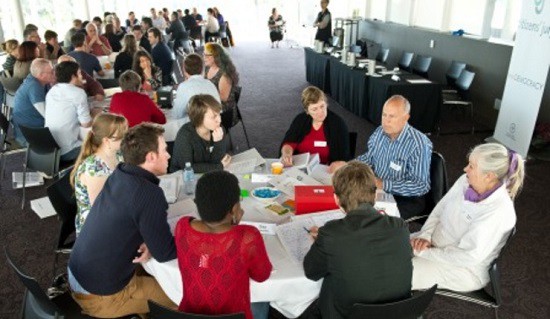Citizens’ juries are growing in Australia, but are usually divorced from decision-makers. A better design consciously couples mini-publics and elites.
Modern politics is often characterised as a world of electoral sound bites and party competition, with few opportunities for informed public debate. But this is perhaps an unfair representation of what goes on at the heart of most contemporary democracies.
Out of the media spotlight there exists a routine underworld of policy deliberation that goes on in parliaments and their committees, courts, advisory bodies, commissions, party rooms, and numerous collaborative partnerships.
This is a deliberative, but highly elite world occupied by officials, leaders and experts. Citizens do, of course, find alternative spaces to contest and discuss policy issues, but the challenge for modern democracies is whether our elite deliberators are listening.
Disconnections between elites and citizens have plagued democracies throughout the centuries. Yet recent developments in the practice and theory of deliberative democracy provides an opportunity to rethink how we might better couple spaces of elite deliberation with spaces of citizen deliberation.
Coupling refers to the connections and relationships between different democratic institutions and practices so that they speak to one another.
Read more: Mini-publics linking citizens and elites in policy deliberations | The Mandarin
